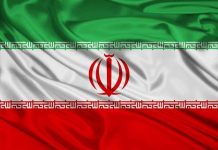DM Monitoring
ISTANBUL: The Presidency of Religious Affairs (Diyanet) reversed an earlier decision by the Health Ministry to allow tarawih, a collective Islamic prayer exclusive to the upcoming fasting month Ramadan, at mosques.
Diyanet President Ali Erbaş announced on Tuesday that they decided that it would be better for the public to perform prayers at home “based on current circumstances.” He was referring to a raging coronavirus outbreak, which forced authorities to impose additional lockdowns.
Ramadan, a holy month in Islam, will begin in Turkey next week. Tarawih is among prayers required to be performed en masse, preferably at mosques, every evening of the month. Last year, the faithful had to skip them, in the early days of the pandemic.
One year on, the outbreak remains a fixture of daily life for millions. Mosques are open for other obligatory collective prayers under Islam, like Friday prayers but all participants are required to wear masks and enforce social distancing, though collective prayers should be performed with no gaps in prayer rows.
Erbaş was speaking at a press briefing about Ramadan in the capital Ankara during which he also explained religious scholars’ views on other pandemic-related issues.
One such question that confused the faithful was whether vaccination against the virus would spoil the fast that requires one to abstain from eating and drinking. Erbaş reiterated earlier statements by Diyanet officials on the issue and said vaccination would not break the fast.
Meanwhile, a study by Celal Bayar University in the western province of Manisa proved that CoronaVac, an inactive vaccine developed by China’s Sinovac, boosts immunity 99%. The study, however, points out that antibody response is higher when two doses of the vaccine are administered.
CoronaVac was the first vaccine to be administered in the country, starting in January. It still comprises the bulk of the current vaccination program, which was diversified with the Pfizer-BioNtech vaccine last week.
The university’s study is the most comprehensive of its kind about the vaccine in the country, according to the scientists behind it. Researchers run quantitative and qualitative tests on antibodies in connectors between the spike protein of SARS-CoV-2 and receptor-binding domain (RB). Between Jan. 11 and March 18, researchers ran tests among 1,053 people without SARS-CoV-2 antibodies.
All were health care workers who were prioritized in the country’s inoculation campaign.
Professor Sinem Akçalı, one of researchers, said they wanted to see how long antibody levels prevailed among vaccinated health care workers. Şebnem Şenlo Akar, another researcher, said that all participants had no history of the coronavirus and negative antibodies.




